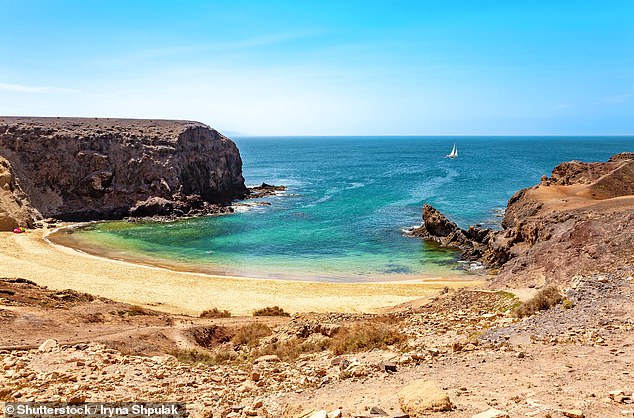[ad_1]
Lanzarote is planning to launch a major new tourist campaign as the Canary Island declares it ‘doesn’t want just any tourist’.
The new campaign has been designed to promote ‘ethical and responsible tourism’ reports local publication, the Canarian Weekly.
At the campaign’s launch, Oswaldo Betancort, president of the Lanzarote Cabildo, said: ‘We are sending a very clear message.
‘Lanzarote doesn’t want just any tourist, but rather those who love and enjoy the island, who respect its uniqueness and contribute to its preservation.’
The island, which received over three million tourists in 2024, is also aimed at Lanzarote’s local residents.
Hector Fernandez, a tourism lead in Lanzarote, said: ‘This campaign isn’t just for tourists, it’s also aimed at our local population.
‘The message will be integrated into our work with airlines and tour operators to reshape how tourism is viewed on the island. It’s a chance to change the entire paradigm of Lanzarote as a destination.’
The island’s new focus is set to be on its ‘delicate and beautiful territory’ rather than nightlife.

Lanzarote is planning to launch a major new tourist campaign as the Canary Island declares it ‘doesn’t want just any tourist’

The new campaign has been designed to promote ‘ethical and responsible tourism’

Lanzarote is the third-most visited of the Canary Islands with the majority of tourists attracted by its beaches
‘We are creating a globally unique model of ethical and responsible tourism,’ added Betancort.
‘The aim is for visitors to understand, even before they land here, that they are entering a delicate and beautiful territory that needs to be protected.’
Lanzarote is the third-most visited of the Canary Islands with the majority of tourists attracted by its beaches.
A volcanic island, Lanzarote’s unique landscapes have been compared to Mars of the surface of the moon.
In May, local residents took to the streets to protest against the island’s tourism industry.
Protests also took place in Tenerife, Fuerteventura, El Hierro, La Palma and La Gomera.
[ad_2]
This article was originally published by a www.dailymail.co.uk . Read the Original article here. .

